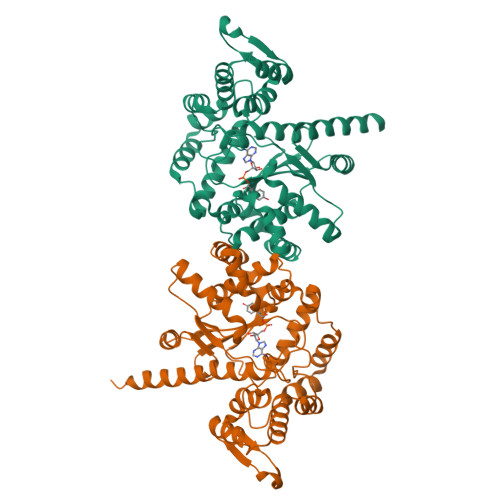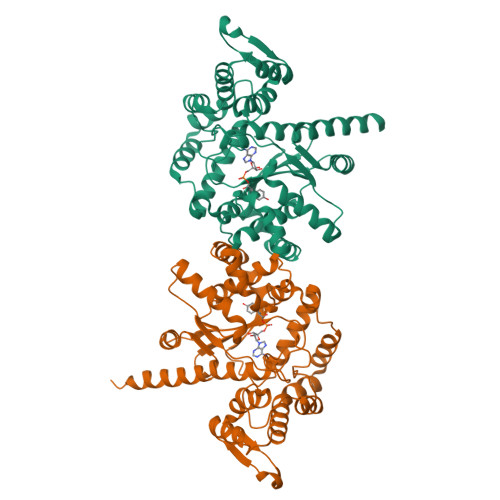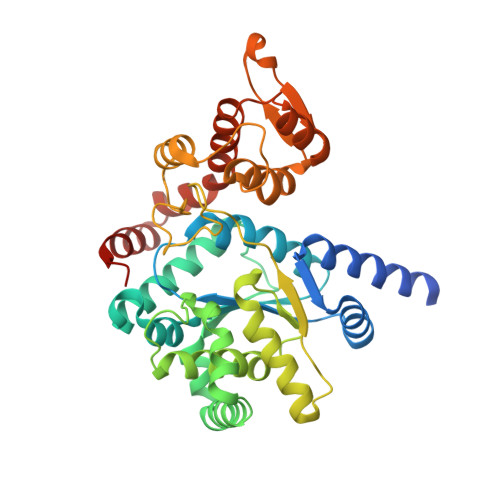Malaria parasite tyrosyl-tRNA synthetase secretion triggers pro-inflammatory responses.
Bhatt, T.K., Khan, S., Dwivedi, V.P., Banday, M.M., Sharma, A., Chandele, A., Camacho, N., de Pouplana, L.R., Wu, Y., Craig, A.G., Mikkonen, A.T., Maier, A.G., Yogavel, M., Sharma, A.(2011) Nat Commun 2: 530-530
- PubMed: 22068597
- DOI: https://doi.org/10.1038/ncomms1522
- Primary Citation of Related Structures:
3VGJ - PubMed Abstract:
Malaria infection triggers pro-inflammatory responses in humans that are detrimental to host health. Parasite-induced enhancement in cytokine levels correlate with malaria-associated pathologies. Here we show that parasite tyrosyl-tRNA synthetase (PfTyrRS), a housekeeping protein translation enzyme, induces pro-inflammatory responses from host immune cells. PfTyrRS exits from the parasite cytoplasm into the infected red blood cell (iRBC) cytoplasm, from where it is released into the extracellular medium on iRBC lysis. Using its ELR peptide motif, PfTyrRS specifically binds to and internalizes into host macrophages, leading to enhanced secretion of the pro-inflammatory cytokines TNF-α and IL-6. PfTyrRS-macrophage interaction also augments expression of adherence-linked host endothelial receptors ICAM-1 and VCAM-1. Our description of PfTyrRS as a parasite-secreted protein that triggers pro-inflammatory host responses, along with its atomic resolution crystal structure in complex with tyrosyl-adenylate, provides a novel platform for targeting PfTyrRS in anti-parasitic strategies.
Organizational Affiliation:
Structural and Computational Biology Group, International Centre for Genetic Engineering and Biotechnology (ICGEB), Aruna Asaf Ali Road, New Delhi 110 067, India.




















